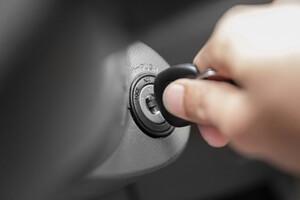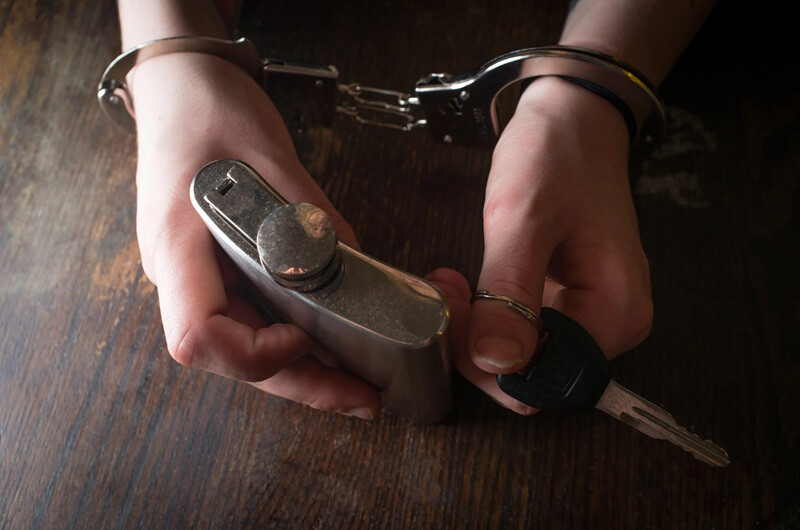The Ignition Interlock Requirements After A Second DUI
The Ignition Interlock Requirements After A Second DUI
Overview:
A second DUI in Arlington, VA, comes with tough consequences, including the mandatory use of an ignition interlock device before restricted driving privileges are restored. These devices act like small breathalyzers, preventing a car from starting if alcohol is detected. Drivers must meet eligibility rules, follow strict conditions, and cover costs for installation, monitoring, and calibration. Staying compliant with reporting and avoiding lockouts is key to keeping driving privileges.
A second DUI conviction in Arlington carries weighty consequences that reach far beyond fines or court appearances. One of the most significant requirements is the installation of an ignition interlock device, which becomes mandatory before restricted driving privileges can be restored. These devices serve as both a safeguard for the public and a reminder of the importance of sober driving.
If you’re facing this situation, it’s important to understand how ignition interlock devices work, who qualifies for their use, and the conditions that come with them. From costs and compliance to the responsibilities of daily use, knowing what to expect can help you take the right steps toward regaining control of your life.

How Ignition Interlock Devices Work
An ignition interlock device, often called an IID, is essentially a small breathalyzer installed in your vehicle. Before starting the car, you blow into the device, which measures your blood alcohol content. If the reading is above the legal limit, the engine will not start.
For a second DUI conviction in Virginia, using an IID is not optional. The state requires installation as a condition for restoring even limited driving privileges, such as commuting to work or attending medical appointments. This measure is designed to reduce repeat offenses and to emphasize that public safety always comes first.
If you’re required to use one of these devices, think of it as more than just a legal requirement. It is also a tool that promotes accountability and encourages safer driving habits. By limiting access to the road after a conviction, IIDs help reinforce the importance of making responsible choices behind the wheel.
What Are The Conditions For IID After A Second DUI?
After a second DUI, Virginia law requires drivers to install an IDD to regain restricted driving privileges. This step is not automatic: you must meet specific eligibility rules and follow the conditions the court sets. Failing to comply can bring tougher restrictions or additional penalties.
Eligibility Requirements For IID Installation
Not every driver is immediately eligible for an IID. Courts look at specific factors, like age and the details of your conviction. In most cases, if you’re over 21 and convicted of a second DUI, installing an IID is mandatory before you can get back on the road with limited driving privileges. Drivers under 21 face different regulations, with stricter consequences tied to Virginia’s zero-tolerance laws.
Conditions & Restrictions With IID Use
Once installed, the device comes with responsibilities. You’ll need to attend monthly or bi-monthly check-ins so the provider can review data, confirm accuracy, and check for signs of tampering. Missing these appointments or trying to bypass the device often leads to longer IID terms or even license suspension.
To maintain restricted driving privileges, every vehicle you operate must have an IID installed. The device also needs consistent monitoring, which usually means regular reporting to show there have been no failed tests or tampering attempts. If the device detects alcohol, it can temporarily lock your vehicle, creating sudden disruptions in your routine.
Staying on top of these conditions is the only way to avoid added penalties and keep moving toward the goal of restoring full driving privileges.
How To Install An Ignition Interlock Device
The process of installing an ignition interlock device begins with authorization from the court. This paperwork outlines the conditions for restricted driving privileges and sets the timeline for compliance. Without this approval, you cannot move forward with installation.
Once you have the necessary paperwork, the next step is selecting a state-approved provider. Arlington offers several options, and drivers can choose the one that is suitable for their schedule and location. During the appointment, technicians install the device and explain how to use it. They show you the proper way to blow into the device and how to handle basic troubleshooting.
This hands-on demonstration helps build confidence before you drive again. Providers also remind you about monthly calibration and the importance of avoiding anything that could trigger a false reading. Keeping all related paperwork after installation is useful in case questions or issues arise later.
What Are The Costs Associated With Ignition Interlock Devices
Covering the expenses for an ignition interlock device is one of the challenges drivers face after a second DUI. Between installation, monitoring, and calibration, the costs add up quickly. Still, knowing what to expect makes it easier to plan ahead, and for those in financial hardship, help may be available.
Initial Fees & Setup Costs
The first bill usually comes from installation. This fee pays for getting the device fitted in your vehicle according to Virginia’s requirements. Some providers also charge a programming fee to adjust the device settings so they match the court’s orders. While the upfront price can sting, it’s the necessary first step to getting back on the road.
Ongoing Monthly Fees
Once the device is in place, monthly costs follow. These payments cover monitoring and regular calibration to make sure the IID is working correctly. If you miss a scheduled calibration or need an extra service visit, additional fees may apply. Since the exact price varies by provider, it’s smart to budget for a steady monthly expense.
Financial Assistance Options
Not every driver can easily afford these costs. That’s why some providers offer income-based programs that reduce the installation fee or lower the monthly payments. These sliding-scale options can ease the burden, especially for drivers already stretched thin. Taking advantage of them can make compliance much more manageable.
Being prepared for the financial side of IID use helps avoid unpleasant surprises and keeps the focus on meeting court requirements. Once the financial side is clear, the next concern is often how long the device must remain in place and what it takes to stay compliant.
Duration & Compliance Requirements For IID Usage
The amount of time an ignition interlock device must remain in your vehicle depends on both Virginia law and the details of your case. Courts generally require a minimum period of 12 months, but judges may extend this timeline if your record shows additional concerns. Knowing what the court expects from the start helps you prepare for the road ahead.
How Long Is IID Required After A Second DUI?

Compliance Requirements
Meeting compliance standards is just as important as the length of time the device is installed. Drivers are required to report for monthly or bi-monthly appointments where the provider reviews the IID’s data. These reports check for failed tests, missed uses, or any attempts at tampering.
Falling short on compliance can make the situation worse. Missed appointments, failed tests, or signs of interference can result in extended IID use or even a suspended license. Staying consistent with the rules keeps the process on track and helps you work toward restoring your full driving privileges.
How The Irving Law Firm Can Help With DUI Defense
A second DUI charge in Arlington brings more than just penalties: it adds stress, uncertainty, and serious questions about your future. In moments like these, having reliable legal guidance becomes especially important. The Irving Law Firm works closely with clients to ease the weight of the process and focus on building a path forward.
Our attorneys carefully examine the details of each case, from how the arrest was handled to whether the evidence can hold up in court. Depending on the circumstances, we may pursue dismissal, negotiate for reduced penalties, or prepare for trial. When ignition interlock devices are required, we also help clients understand the rules and avoid mistakes that could cause further setbacks.
The goal is always to protect both your rights and your ability to move ahead with as little disruption as possible. With a strategic approach to each case, The Irving Law Firm provides steady support during a time that often feels uncertain.




